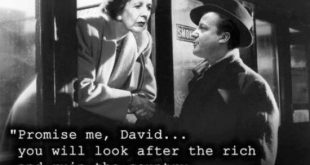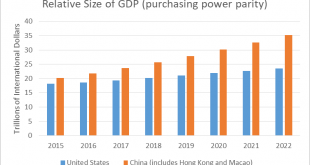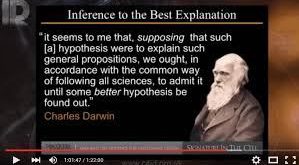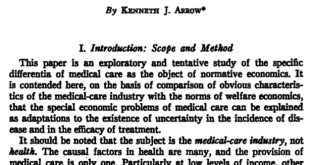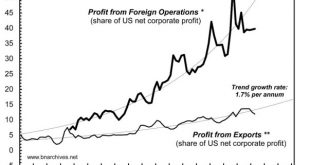from Lars Syll Yours truly was interviewed last week for a radio program re the legacy and impact of Margaret Thatcher on society. The picture below conveys, in not so many words, my feelings and views on the subject … The rising inequality that has been going on in our societies since the Reagan-Thatcher era is outrageous. Income and wealth have increasingly been concentrated in the hands of a very small and privileged elite. And a society where we allow the inequality of incomes and...
Read More »Buyback this!
from David Ruccio I have been arguing, since 2016 (e.g., here, here, and here), that one of the likely outcomes of the kind of corporate tax cuts Donald Trump and his fellow Republicans have supported—and, as we saw, eventually rammed through—would be an increase in inequality. That’s because corporations would likely use a portion of their higher profits to engage in stock buybacks, leading to an increase in stock prices. And stock ownership in the United States is already grotesquely...
Read More »China as Number One: The relative size of the U.S. and Chinese economies
from Dean Baker Eswar Prasad makes the case in an NYT column that we should be paying attention to the selection of Yi Gang to head China’s central bank as a result of China’s status as the world’s second-largest economy. Prasad is right about the importance of China’s central bank in the world economy, but it is worth noting that by purchasing power parity (PPP) measures China is already by far the world’s largest economy. Purchasing power parity calculations of GDP attempt to measure...
Read More »Scientific realism and inference to the best explanation
from Lars Syll In a time when scientific relativism is expanding, it is important to keep up the claim for not reducing science to a pure discursive level. We have to maintain the Enlightenment tradition of thinking of reality as principally independent of our views of it and of the main task of science as studying the structure of this reality. Perhaps the most important contribution a researcher can make is to reveal what this reality that is the object of science actually looks like....
Read More »Utopia and healthcare—2
from David Ruccio The dystopia of the American healthcare system certainly invites a utopian response—a ruthless criticism as well as a vision of an alternative. As I showed last week, the left-wing response involves a critique of the conditions and consequences of the capitalist organization of U.S. healthcare and the fashioning of a radical alternative. Single-payer, which uses tax revenues to finance the purchase of adequate healthcare services for everyone, is one possibility. On top...
Read More »Syll’s top 20 books compared to RWER’s top 10 and its poll’s top 40 vote receivers
In May of 2016 the Real-World Economics Review conducted a poll titled “Top 10 Economics Books of the Last 100 Years” Voting was open to the journal’s 26,000 subscribers, and over 3,000 of them voted, each having up to ten votes and with 17,270 votes in total cast. The results were published two weeks later and linked on over 2,000 Facebook pages. It is interesting to compare those results to Lars Syll’s personal list of “Top 20 heterodox economics books” published here earlier today....
Read More »Top 20 heterodox economics books
from Lars Syll Karl Marx, Das Kapital (1867) Thorstein Veblen, The Theory of the Leisure Class (1899) Joseph Schumpeter, The Theory of Economic Development (1911) Nikolai Kondratiev, The Major Economic Cycles (1925) Gunnar Myrdal, The Political Element in the Development of Economic Theory (1930) John Maynard Keynes, The General Theory (1936) Karl Polanyi, The Great Transformation (1944) Paul Sweezy, Theory of Capitalist Development (1956) Joan Robinson, Accumulation of Capital (1956)...
Read More »What happens next?
from Peter Radford As we tumble from one degrading political spectacle to another it is worth remembering that things that mattered were actually addressed periodically, even if the result was tumult. For reasons not worth mentioning here I am taking good look at English history between 1909 and 1911. In this case the tumult was triggered by a budget which was resisted by landowners and the House of Lords, and ended with a radical reorientation of power that left the House of Lords...
Read More »Trump’s trade wars threaten US foreign investment
from Shimshon Bichler and Jonathan Nitzan There is a lot of buzz about Trump’s recently launched trade wars, but much of this buzz misses the point. The key issue here is not foreign trade, but foreign investment. Foreign trade contributes relatively little to US corporate profit. The disaggregate data here are patchy, but if we can assume that profit rates on exports and domestic sales are roughly the same, we can use the share of exports in GDP as a proxy for the share of export...
Read More »Keynes and econometrics
from Lars Syll After the 1920s, the theoretical and methodological approach to economics deeply changed … A new generation of American and European economists developed Walras’ and Pareto’s mathematical economics. As a result of this trend, the Econometric Society was founded in 1930 … In the late 1930s, John Maynard Keynes and other economists objected to this recent “mathematizing” approach … At the core of Keynes’ concern laid the question of methodology. Maria Alejandra Madi Keynes’...
Read More » Real-World Economics Review
Real-World Economics Review

